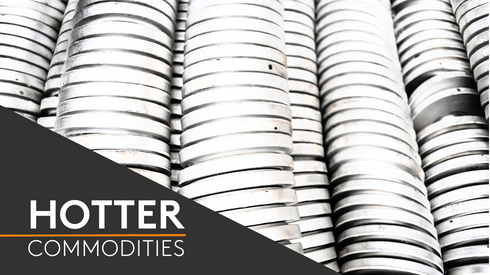The race to secure long-term supply of critical battery raw materials is leading to massive demand growth potential, Mirco Wojnarowicz, commercial manager for Rock Tech Lithium and director at RTT Lithium, told Fastmarkets in an exclusive interview.
Rock Tech is building its first of five planned lithium hydroxide conversion plants in Guben, Germany. The country is set to become a key European electric vehicle (EV) hotspot with significant participants establishing projects across the battery value chain in Germany and neighboring countries.
“The planned conversion facility is perfectly located to serve the European demand for lithium hydroxide,” Wojnarowicz said. “Since lithium hydroxide has a very limited shelf life, it is further of utmost importance to locate the lithium conversion capacity in the proximity of the cathode and battery cell production facilities.”
RTT Lithium, the recently formed joint venture between Rock Tech and commodities trading firm Transamine, aims at sourcing the raw material needed for operating the Guben conversion facility.
“With upward of 500,000 tonnes of third-party processing capacity planned in Europe, the competition to secure the raw material units to feed these plants will be fierce,” Jordan Roberts, Fastmarkets battery raw materials analyst, said. “Transamine’s expertise in the trade of raw materials and its ability to access financing is far greater than Rock Tech, allowing [Rock Tech] to focus on delivering a sustainable battery grade product to the European market, without the headache in securing suitable feed.”
The project recently received permission for an early construction start, with the first significant work on site expected in the coming weeks, Rock Tech announced in January. The facility is expected to start of commissioning in 2025 and the company aims to produce 24,000 tonnes of lithium hydroxide per year.
Beyond ramping up EV production capacities, the short-term focus in the industry is on securing the relevant raw materials and building resilient and localized supply chains.
“The processing projects being planned and built in Europe look set to be up and running before most of Europe’s own lithium brine and mine projects are in production, so it does look like Europe’s processors will be dependent on importing lithium units,” William Adams, head of battery raw materials research at Fastmarkets, said.
Increased efforts to secure key battery materials
Western economies are increasing their efforts to secure the raw materials and the infrastructure needed for their ambitious energy transition goals. The development of localized and sustainable rechargeable battery ecosystems plays a key role in their strategies.
Within this context, the US has recently seen a string of hefty investment announcements in the EV battery ecosystem, taking advantage of incentives arising from country’s 2022 Inflation Reduction Act, which aims to encourage mining and manufacturing in the US and create a more integrated supply chain for EVs, which have typically relied on imports for critical minerals and battery components.
In response to the US initiatives, the EU launched the Green Deal Industrial Plan at the beginning of February, to speed up the energy transformation of the EU. The plan aims to complement previous initiatives and simplify the regulatory environment for the quick deployment of net-zero manufacturing capacities, facilitate access to funding and secure supply of critical materials.
Additionally, previous legislation, like the European Critical Raw Materials Act, announced at the end of last year by European Commission President Ursula Von der Leyen, supports the establishment of a localized European battery value chain in the transition to a greener economy pointing to the critical procurement of the raw materials needed for the EU’s energy transition goals.
“The EU’s Critical Raw Materials Act will probably rely on strategic partnerships for procuring raw materials and to keep those materials inside the domestic EU market via recycling, because the continent closed a lot of its mines a long time ago,” Wojnarowicz said.
“Together with countries like Australia and Canada it will probably become a network of strong trade allies and markets instead of localised ecosystems. And Rock Tech Lithium will be well positioned in it,” he added.
Rock Tech is also investing upstream directly with a mineral project in Ontario, Canada: more than 50% of the permitting has been completed for the Georgia Lake project. The project includes a concentration facility for producing a shippable and sellable spodumene concentrate and plans to start operation in 2025.
Keep up to date with market insights and predictions for 2023 and beyond with our NewGen forecasts.






